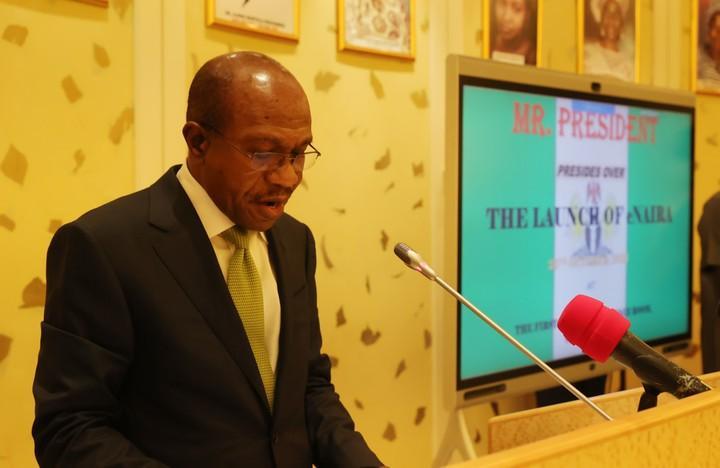- Governor Forfeits N500m as States Get N243b Refund
A governor has forfeited to the Federal Government the N500 million he allegedly laundered in a mortgage bank.
A Federal High Court in Abuja approved an application by the Economic and Financial Crimes Commission (EFCC) for the forfeiture of the cash, which is believed to have been diverted from the London-Paris Club refund.
Also, the court has seized $500,000 of the $3million diverted by another governor from the refund for the building of a 100-room hotel in Lagos.
But the court has given a 14-day deadline to anyone or group who has interest in the funds to show cause why the cash should not be forfeited to the government.
The federal government yesterday released a state-by-state breakdown of another tranche of Paris Club refund of over-deductions on Paris Club/London Club loans and multilateral debts on the accounts of states and local governments from 1995-2002.
A statement from the Ministry of Finance said these payments — N243, 795,465,195.20 —”were made to the 36 states and the Federal Capital Territory upon the approval of the President on May 4, 2017”.
Akwa-Ibom, Bayelsa, Delta, Kano and Rivers states received the largest disbursements of N10 billion each.
According to the enrolment order, which was obtained last night by our correspondent, Justice Nnamdi Dimgba granted EFCC’s prayer for an interim forfeiture of the cash traced to both First Generation Mortgage Bank Limited and Gosh Projects Limited.
While N500million was linked with the bank, about $500,000 was credited to the account of the Gosh Projects Limited as part of the cash for the 100-room hotel.
The EFCC legal team, led by Prince S.B. Ikani, filed an ex-parte motion on June 19.
The anti-graft agency sought for an order of:
interim forfeiture to the Federal Government (1st Applicant) of the N500million recovered from the first respondent, First Generation Mortgage Bank Limited and presently in the possession of EFCC in its Recovered Funds Account domiciled at the CBN; interim forfeiture to the Federal Government (1st Applicant) of the sum of $500,000 recovered from the second respondent, Gosh Projects Limited and presently in the possession of EFCC in its Recovered Funds Account domiciled at the CBN; and directing the publication of a notice in any national daily newspaper inviting any person(s) or body who may have interest in the subject funds to, within 14 days of the publication of the Order, show cause why an Order of final forfeiture to the Federal Government of the said funds should not be made.
Justice Dimgba said: “Upon reading the affidavit in support of the motion ex-parte deposed to by Osas Azonabor and after hearing Prince B. S. Ikani for the applicants, it is hereby ordered as follows:
“That an order is hereby made granting interim forfeiture to the Federal Government of N500million recovered from First Generation Mortgage Bank Limited and presently in possession of EFCC in its Recovered Funds Account domiciled at the CBN.”
“That an order is hereby made granting interim forfeiture to the Federal Government of $500,000 recovered from Gosh Projects Limited and presently in possession of EFCC in its Recovered Funds Account domiciled at the CBN.”
The court asked person(s) or body interested in the funds to come up with a claim within 14 days or lose the cash.
Besides the forfeiture of the cash, the EFCC indicated last night that the two governors implicated in the diversion of the funds will face trial after their tenure.
A source in EFCC said: “We have been unable to join the governors as respondents because they have immunity in line with Section 308 of the 1999 Constitution, which prevents any law enforcement agency from prosecuting them for criminal cases.
“But the case-files have shown their complicity on how they diverted the London-Paris Club refunds to personal use. Those affected will complete their tenure in two years.
“One of the governors is noted for mass looting of public funds. His cup is full with anti-corruption agencies
“As for others used in laundering the cash, we will prosecute them after the final forfeiture of the cash because in seeking justice, you cannot build something on nothing.”
Before the release of the second tranche of London-Paris Club refund on Monday, the Presidency had remitted about N1.266.44trillion to the 36 states in the past one and a half years including N713.70billion special intervention funds.
Following a protest by states against over deductions for external debt service between 1995 and 2002, President Muhammadu Buhari had approved the release of N522.74 billion (first tranche) to states as refund pending reconciliation of records.
Each state was entitled to a cap of N14.5 billion being 25% of the amounts claimed.
The Minister of Finance, Mrs. Kemi Adeosun said the payment of the claims would enable states to offset outstanding salaries and pension, which had been “causing considerable hardship”.
The governors sought for the loan refund to states and local governments at a meeting with President Muhammadu Buhari on May 24, 2016.

 Naira4 weeks ago
Naira4 weeks ago
 Naira3 weeks ago
Naira3 weeks ago


 Naira4 weeks ago
Naira4 weeks ago




 Naira3 weeks ago
Naira3 weeks ago
 Commodities4 weeks ago
Commodities4 weeks ago


 Sport Business4 weeks ago
Sport Business4 weeks ago


 News3 weeks ago
News3 weeks ago


 Banking Sector4 weeks ago
Banking Sector4 weeks ago
























